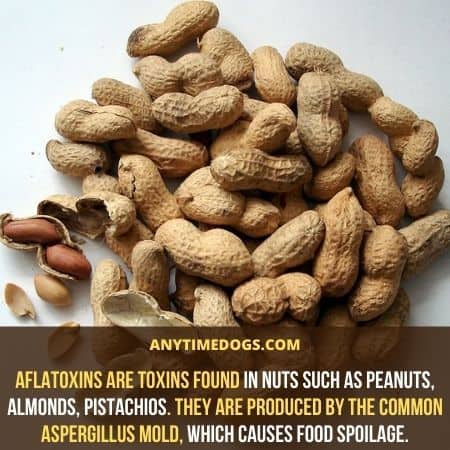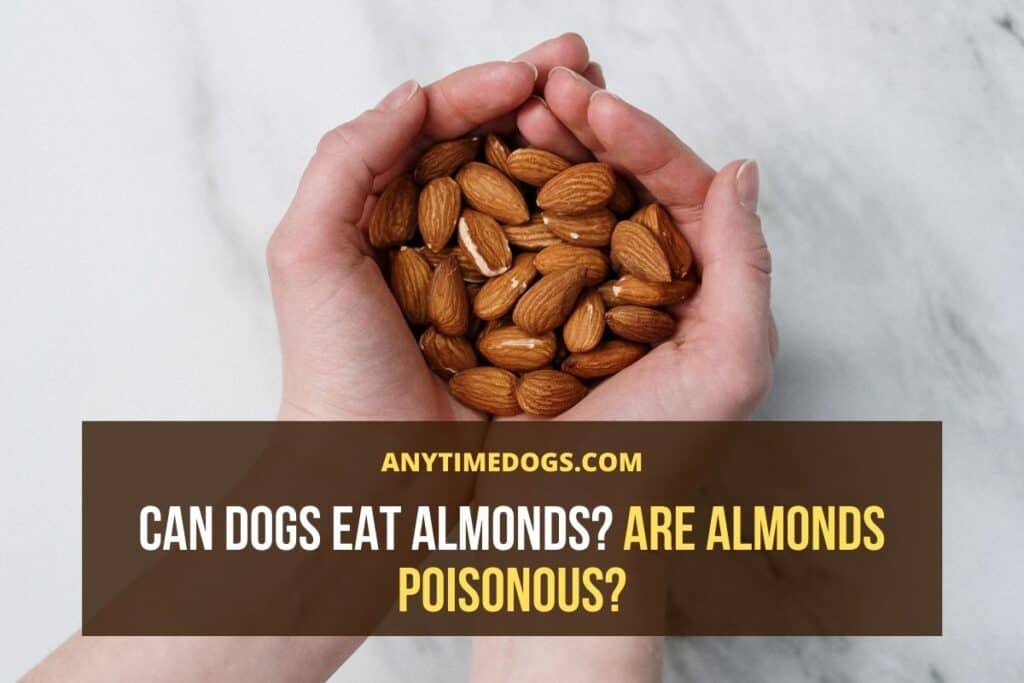Humans enjoy almonds as a snack. But have you ever thought about feeding almonds to your four-legged baby? Can dogs eat almonds? No, they do not. While almonds are not as toxic as some other nuts.
Almonds are one of the foods that dogs cannot digest as easily as humans. They can cause obstructions in your dog’s digestive system. They also pose a choking hazard and other health risks to your dog, especially if salted or seasoned.
Moreover, Almonds are extremely high in fat. They contain fat, which can wreak havoc on your dog’s digestive system and cause gastric intestinal distress. They also contain salt that is dangerous for your dog’s health, as they cannot tolerate sodium in their diets.
Whipped cream, almond milk, sour cream, cream cheese, and pecans are a few more products about which you should be careful before feeding them to your dog.
Can Dogs Eat Almonds? 7 Dangers of Eating Almonds
Almonds are high in vitamin E, which can help reduce the risk of heart disease, antioxidants, which protect against harmful free radicals, and magnesium, and can help lower blood pressure, the risks almonds pose to your pet outweigh the health benefits.
However, almonds are still not safe for dogs. Although they are unlikely to be toxic to dogs, they have been known to occasionally harbor a type of mold called Aspergillus mold, which contains Aflatoxin. Because canines are particularly vulnerable to this substance, it can cause poisoning in them.
Below we have given few side effects of almonds if you plan to feed them to your dog.
1.1. Choking Hazard:
Dogs rarely chew their food. In such cases, almonds are a choking hazard. Consuming whole almonds can cause life-threatening esophageal and windpipe obstructions, especially in toy breeds and small puppies.
1.2. Poor Digestion System:
Dogs don’t have a strong digestive system like humans. So, almonds can cause major indigestion in larger dogs such as Labradors.

Puppies may experience serious bowel obstruction. If your four-legged friend consumes almonds, you can expect to find bits of them in their stool, possibly along with some blood.
1.3. Allergic Reactions:
If your dog is allergic to nuts, even one almond can harm his health. Keep a close eye out for any signs of an allergic reaction, such as coughing, sneezing, difficulty breathing, and hives. If you notice any of these symptoms, contact your veterinarian right away.
1.4. Fluid Retention:
Puppies adore almonds, especially flavored varieties such as cinnamon, smoked, and barbecue. The problem is that packaged nuts contain a lot of salt, which can make your furry friend thirsty and cause fluid retention.

Fluid retention can cause heart problems, can harms the kidneys. Consuming an excessive amount of packaged almonds may also result in salt toxicity. Flavored almonds contain artificial flavors and other additives that are harmful to the health of your dog.
1.5. Kidney stones:
Phosphorus is rich in almonds, which increases the risk of kidney and bladder stones. Furthermore, if stones are not removed, the bladder may rupture, which can be fatal if not treated right away.
1.6. Pancreatitis:
Almonds are high in fat, which is the primary cause of pancreatitis. Loss of appetite, abdominal pain, lethargy, dehydration, difficulty breathing, fever, heart arrhythmias, weakness, weight loss, diarrhea, and vomiting are common symptoms of this condition. Pancreatitis can be fatal if left untreated.
1.7. Aflatoxin:
Aflatoxins are toxins found in nuts such as peanuts, almonds, pistachios. They are produced by the common Aspergillus mold, which causes food spoilage.

While aflatoxins are only mildly toxic to humans, so they can be extremely toxic to our four-legged friends. Lethargy, vomiting, loss of appetite, jaundice, and liver failure are all symptoms of aflatoxin poisoning.
What to Do If Your Dog Consumes Excessive Amount of Almonds?
Dogs of different sizes may react differently to almond consumption. Giant dogs may remain cheerful after stealing a handful of almonds, but little tiny dogs might suffer from esophageal or intestinal obstruction.
After your dog consumes almonds, keep an eye on him for the next 6 to 12 hours. If you find symptoms like diarrhea, vomiting, restless sleeping, and changes in appetite visit the veterinarian.
What Types of Almonds Are Toxic for Your Dog?
Certain types of almonds are harmful to dogs due to increased risk factors. let us discuss the types of almonds that might be toxic for your pet:
3.1. Chinese Almonds:
These are not almonds, but rather the kernels of apricot varieties grown specifically for their seeds.
They contain trace amounts of cyanide and can be extremely dangerous if consumed in large quantities. As a result, they should always be roasted or blanched before consumption.
3.2. Bitter Almonds:
These almonds are a cross between regular and sweet almonds. They also contain cyanide and, due to the risk of toxicity, cannot be sold unrefined in the United States, but can be found in almond liqueurs and almond-flavored extract.
Can Dogs Eat Almonds? Final Verdict:
Although almonds are nutritious for humans, they are not necessarily the best food for your dogs. Our canine companions have distinct nutritional requirements that are dictated by their internal structure.
While almonds are not poisonous, they are one of the few foods that dogs cannot digest as quickly as we do. So, can dogs eat almonds? The short and simple answer is NO. Your dog may have eaten a few almonds in the past and felt fine, but now that you’re aware of the dangers, you should hide any almonds you have.

